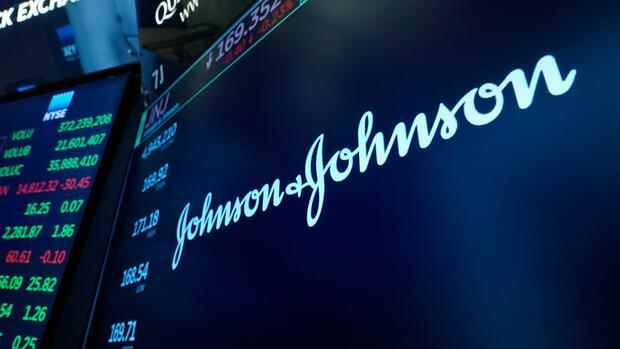The US company wants to outsource its consumer products business.
(Photo: AP)
Frankfurt The US pharmaceutical company Johnson & Johnson wants to split into two companies. The consumer health business with over-the-counter drugs and other health products, which has sales of around 14 billion dollars, is to go public as an independent company. The company announced on Friday that the separation should take place over the next 18 to 24 months.
The US group, which is still the world’s largest provider of health products, is following a trend that has existed for years in the pharmaceutical industry to focus more on the development and sale of innovative pharmaceuticals and to split off or sell consumer-related businesses.
In recent years, Pfizer, Merck & Co, Novartis, Boehringer Ingelheim and the Darmstadt-based Merck Group have parted with their consumer health divisions. The British pharmaceutical giant Glaxo-Smithkline, which has taken over the majority of the consumer divisions from Novartis Pfizer in recent years, is planning to spin off the unit in the coming year.
Sanofi has at least prepared for a comparable step by bundling the consumer health business under the umbrella of an independent subsidiary. The Leverkusen Bayer Group will thus possibly remain as the last major corporation that still operates pharmaceuticals and consumer products under one roof.
Top jobs of the day
Find the best jobs now and
be notified by email.
There is also a strong trend towards the dissolution of conglomerates in other industries outside the pharmaceutical sector. Most recently, General Electric and Toshiba had announced a split. In the case of Johnson & Johnson, the stock exchange reacted only moderately positively to the plans. The group’s share rose around 1.6 percent in early New York trading.
J&J wants to limit risks from the consumer area
CEO Alex Gorsky justified the planned split with the fact that the new structure would allow it to accelerate profitable growth and offer better services to customers. In addition, the move should also be motivated by the goal of separating the Group’s highly profitable pharmaceutical and medical technology business even more from the damage compensation risks in the consumer area.
Because in its consumer division, J&J has been fighting extensive claims for damages in connection with the sale of powder for years. Thousands of plaintiffs here blame Johnson & Johnson’s product for cancer. In previous proceedings, the US company has suffered several painful defeats, including a sensational judgment worth $ 4.7 billion in the state of Missouri. Although this was later reduced a little, it still cost the company 2.5 billion dollars in the end.
In October, the group had outsourced the obligations in connection with numerous pending lawsuits to a separate company, for which bankruptcy protection under Chapter 11 of the US Bankruptcy Code was subsequently applied for.
Johnson & Johnson’s consumer division had sales of around $ 14 billion last year with brands such as Listerine, Penaten and Band Aid. As an independent company, it should continue to be the market leader ahead of GSK, Sanofi and Reckitt Benckiser. The business is primarily marketing-driven, achieves lower returns than the classic pharmaceutical business, but on the other hand is characterized by greater consistency. It is less dependent on a steady stream of innovations.
After the spin-off, the “new Johnson & Johnson” will still include the pharmaceuticals business and the medical technology division. It will still be one of the largest healthcare companies in the world, with sales of approximately $ 77 billion.
In addition, both areas are in a relatively high-growth state. In the first nine months, the pharmaceutical division increased sales by eleven percent after adjusting for currency effects to almost 38 billion dollars, the medical technology division by a fifth to 10.7 billion dollars. In purely sales terms, J&J in the new structure is likely to fall behind Pfizer for the first time, which is currently expanding very strongly through the Covid vaccine business operated together with Biontech.
More: Technology group Toshiba splits into three companies
